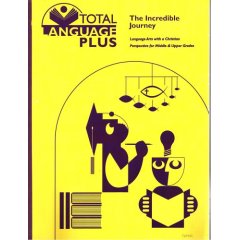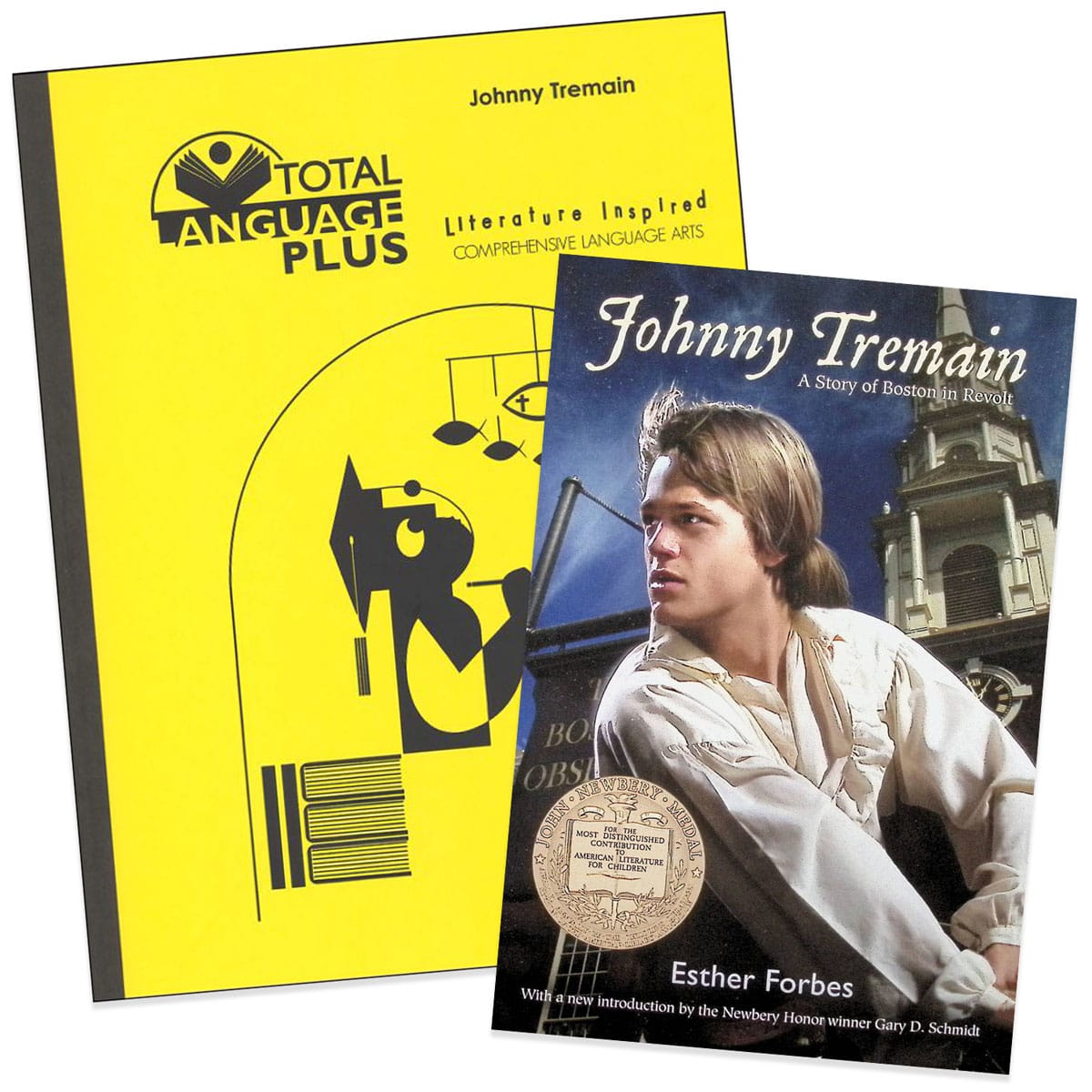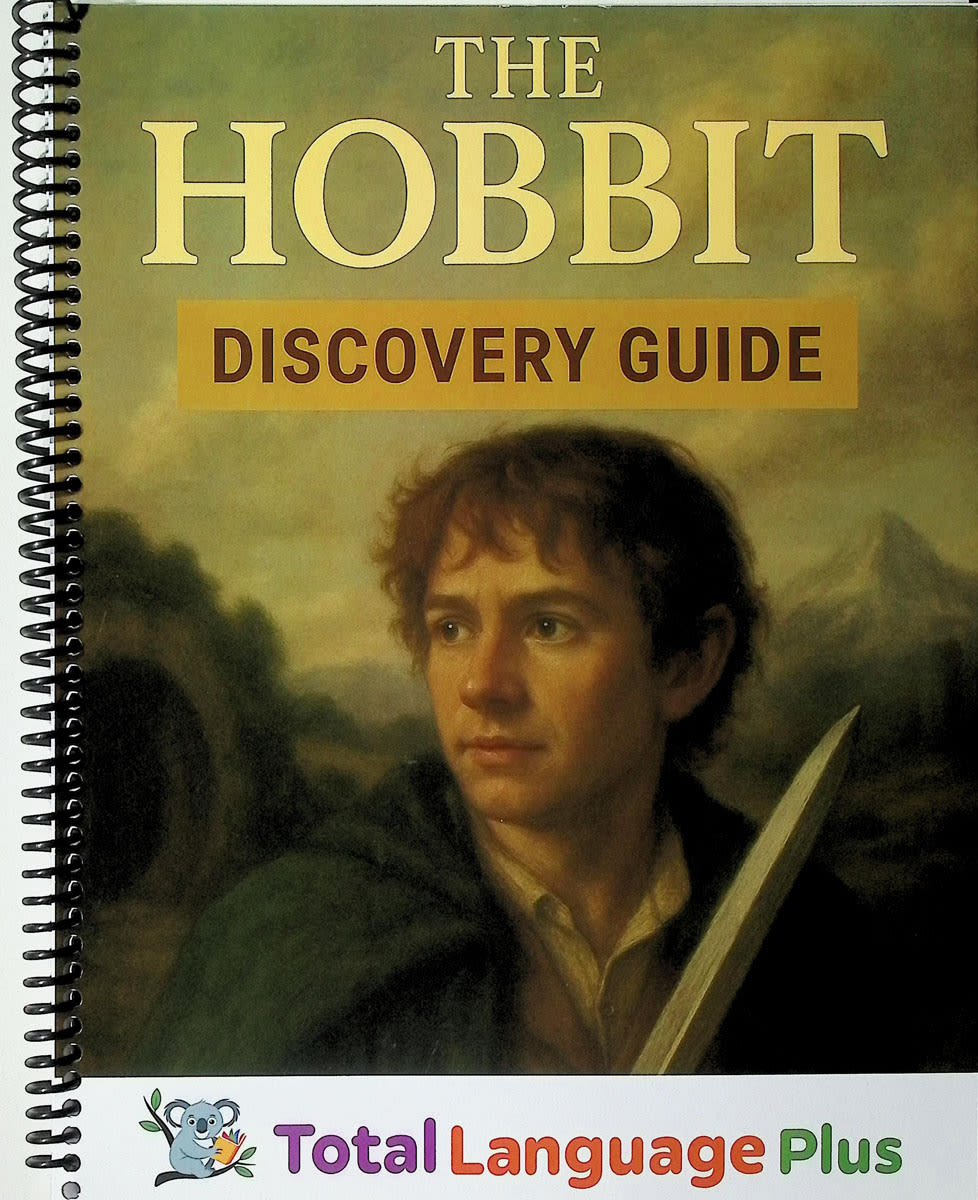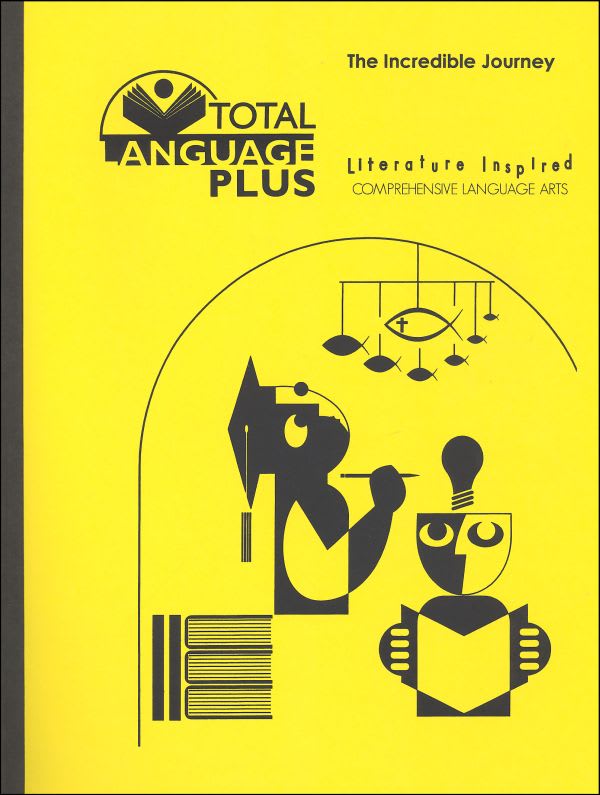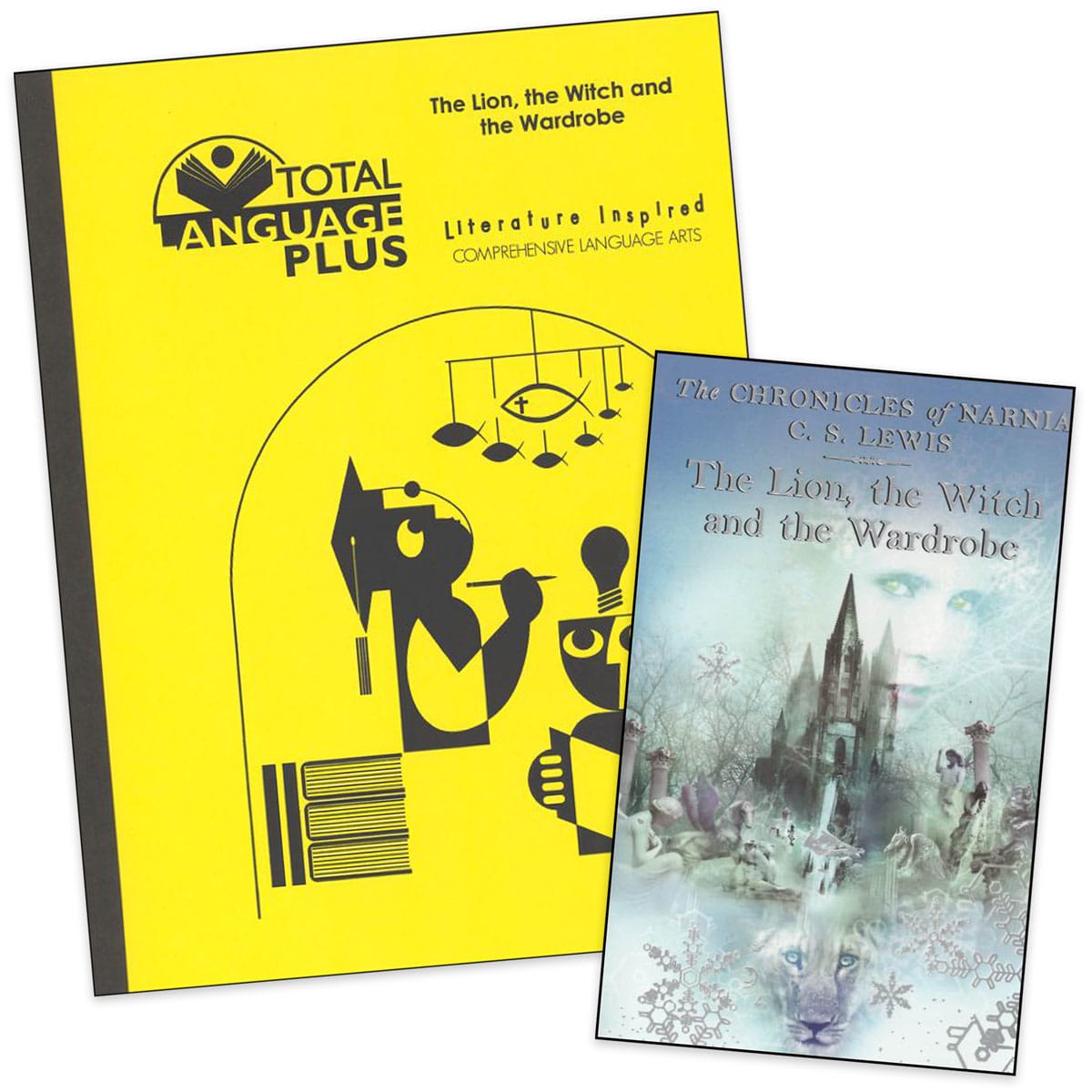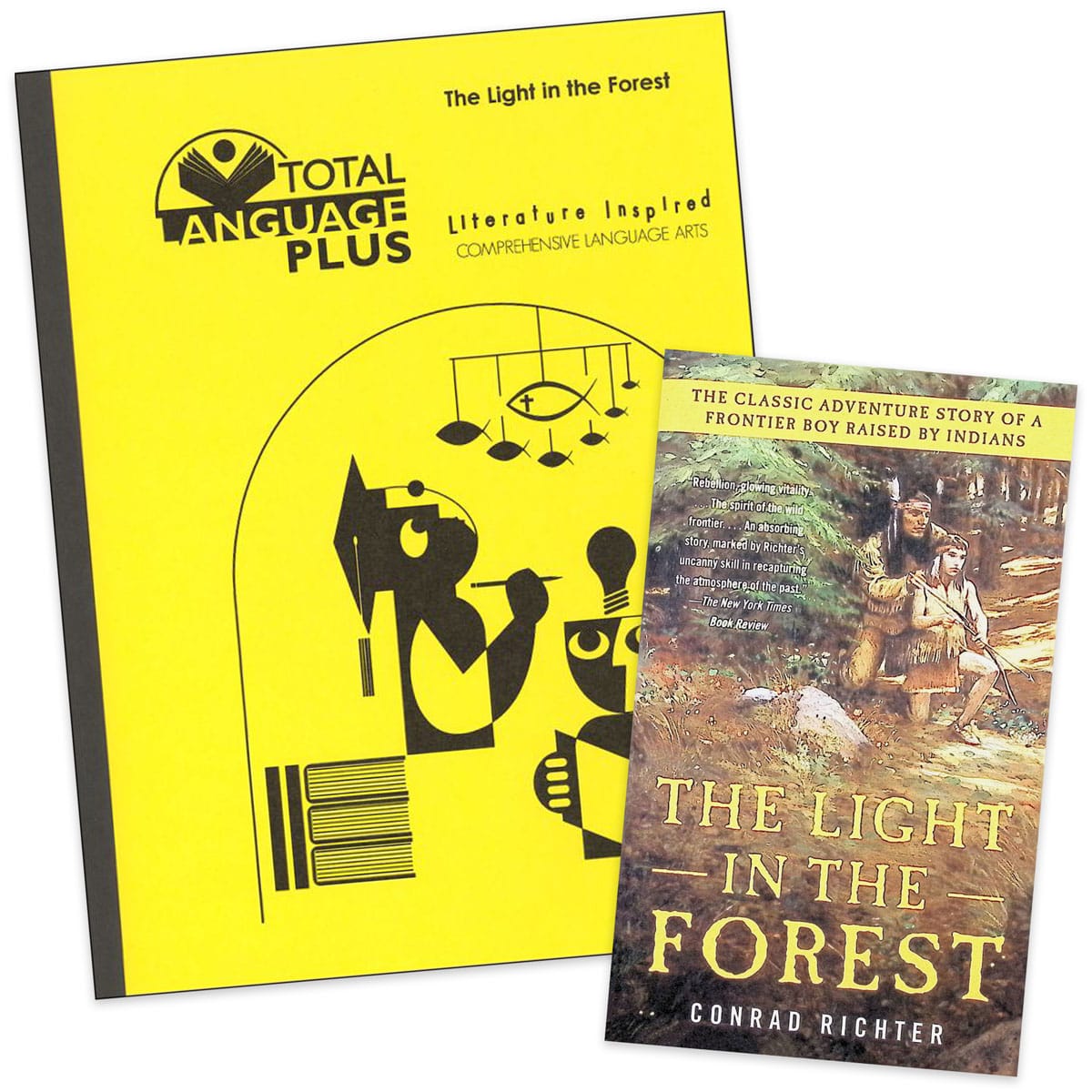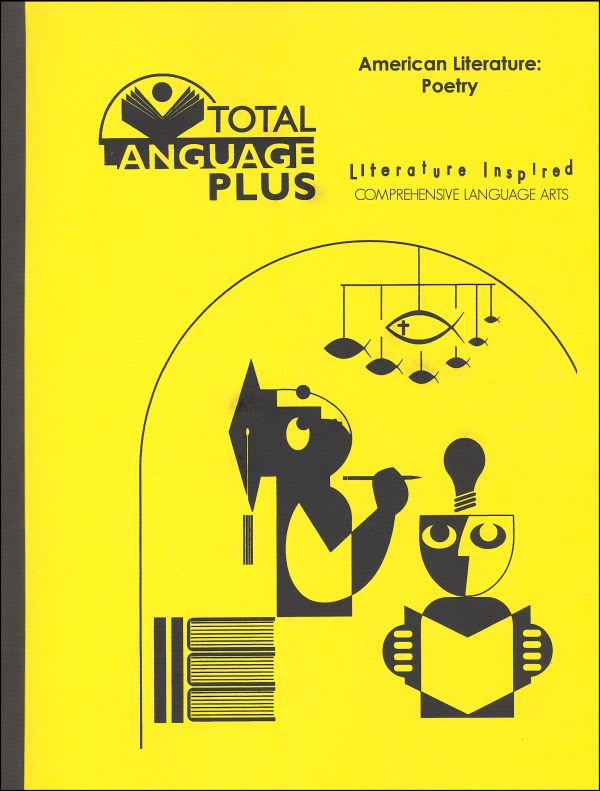Total Language Plus (TLP) novel study guides cover reading, comprehension, spelling, grammar, vocabulary, writing, listening, and analytical and critical thinking from a Christian perspective. Each volume is both a student study guide and a workbook for the study of a companion novel. Study guides are written for various levels from third through twelfth grades. For example, the study of Caddie Woodlawn is suggested for grades five and six while Anne of Green Gables is for grades seven through nine.
Students read sections of the novel each week and answer comprehension questions. But that’s only one aspect of TLP. The week’s study also includes vocabulary work consisting of four lessons working with words drawn from the reading. There are also four activities for a list of spelling words drawn from the reading. Grammar worksheet activities include dictation exercises and grammatical work with the dictated material.
In the guides for fifth grade and up, lessons dealing with grammar, writing, and spelling rules are for application and review rather than instruction. There are occasional exceptions in some of the high-school-level guides, such as those for To Kill a Mockingbird and Around the World in 80 Days, which do include some instruction in composition and literary analysis. Aside from that, a basic understanding of grammar, spelling, and composition skills is assumed in the guides for grades five and up.
The TLP guides targeting grades three and four maintain intensive coverage of reading comprehension, spelling, and vocabulary, while they add detailed grammar and composition instruction along with some spelling rules. These levels also have students create and work with spelling and vocabulary flashcards in drills and games. Keep in mind that you might need to use other resources for grammar for these levels because grammar instruction is spotty; there is no set progression of skill or topic coverage. Because of the additional content, these guides are larger than the others.
In all of the guides, students create their own glossary toward the back of the book by entering definitions and parts of speech labels for their vocabulary words each week.
At the beginning of each unit are Enrichment/Writing suggestions. These always include writing activities, but other activities depend upon the book being studied. For example, the guide for Around the World in Eighty Days includes map and geography work. Some activities are not tied directly to any particular chapter, so you can use them when, if, and how you wish. You can select more activities to turn your study into an in-depth unit study or choose fewer and stick to the basics. You might use some of these activities for discussion and some for writing assignments. The activities are presented as suggestions rather than as fully developed plans, so they require independent research and work beyond what is presented in the guide. TLP’s effectiveness in developing broader writing skills is also dependent upon your selection of assignments from the Enrichment/Writing suggestions as well as upon your work with your students on the writing process within those assignments.
Study guides get more challenging at the high-school level, especially with the addition of extensive writing activities and oral readings. I am particularly impressed with the quality of the writing activities. They teach and stress organization and planning while offering students suggestions about the main points they might wish to include. This is very helpful since coming up with topics to write about seems to be a challenging area for many students, and many parents are unsure about how to develop this area of writing skills. TLP's writing assignments at upper levels should provide a significant part of your composition instruction.
The level of the vocabulary and spelling in advanced-level guides is also more challenging. The amount of both vocabulary and spelling practice is appropriate for high schoolers, although some students might need to work on additional vocabulary words that are at a less challenging level.
A “Note to Teachers and Students” at the beginning explains how to use each study guide. Answer keys are at the back of each book. Suggested responses are given for some questions, but parents really need to read the novels themselves to be able to fairly evaluate all student responses as well as to be prepared for discussions. Other than that, preparation time is minimal. Students will need access to a Bible, a dictionary, and a thesaurus for some of their work.
In all of the guides, scripture verses are often used for dictation, and exercises have very general Christian references once in a while such as in the example sentence given for the word “approbation” which reads, “God bestows His approbation on all who seek to do His will” (TLP: The Swiss Family Robinson, p. 80).
The number of lessons in the various volumes of TLP ranges from five to eight, so some books are likely to take longer to study than others. Generally, a volume should take from nine to ten weeks to complete, so plan to complete about four per school year.
If impatient students want to read through the novel quickly rather than spread it out, they can do so by covering the comprehension and critical thinking questions as they go, then go back through the remainder of the lesson activities after they have read the novel.
You need to obtain the novel for each study, so TLP sells inexpensive copies. There are more than 50 guides for novels available at this time.
Examples of Titles for Different Levels
Some of the novels that can be studied by students in third and fourth grade are Charlotte’s Web, The Courage of Sarah Noble, Pippi Longstocking, Shiloh, Sign of the Beaver, and The Whipping Boy.
Among novels for which TLP has guides that can be used for grades five through eight are My Side of the Mountain; The Light in the Forest; The Lion, the Witch, and the Wardrobe; A Wrinkle in Time; Johnny Tremain; The Bronze Bow; Wheel on the School; The Call of the Wild; The Swiss Family Robinson; Carry on, Mr. Bowditch; and Anne of Green Gables.
High school students can use studies for the novels such as The Scarlet Letter; The Good Earth, The Hiding Place, Oliver Twist, To Kill a Mockingbird, and Jane Eyre.
Three additional anthology guides for high school are also available. American Literature: Nonfiction, American Literature: Poetry and American Literature: Short Stories can be used along with the high-school-level guide(s) for one or two novels to create a complete American Literature course. The American Literature guides include examples of poetry and short stories, but you will need to find most of the readings within anthologies or on the internet. These guides include planning schedules for completing the modules that might each take from six to ten weeks depending upon the academic needs of students and the time available.
Summary
TLP guides might serve as a supplement or a primary learning tool depending upon the needs of each student. It should be your primary resource for reading skills; you do not need another reading program. It complements other instruction in grammar, composition, and spelling. However, it might be your primary resource for composition at the high school level.
Focus Guides
Focus Guides, a newer series of much smaller guides to novels, do not include spelling or grammar and have limited work with vocabulary. Instead, they focus on reading comprehension, substantial writing assignments, scripture applications with memory verses, and either a particular writing skill or a character trait. For example, the study of Animal Farm works on discernment, while the study of Crispin: The Cross of Lead pays special attention to descriptive writing. Guides are written for students working at about sixth-grade level and above. These guides should each take only about three weeks to complete. There are eleven Focus Guides at this point, and you might use a few of them as a significant part of your language arts program each year. The scripture applications give the Focus Guides more overt Christian content than the other TLP guides.





